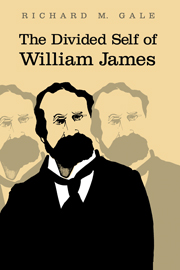Book contents
- Frontmatter
- Contents
- Acknowledgments
- Introduction
- The Promethean Pragmatist
- The Anti-Promethean Mystic
- 8 The Self
- 9 The I–Thou Quest for Intimacy and Religious Mysticism
- 10 The Humpty-Dumpty Intuition and Panpsychism
- 11 Attempts at a One-World Interpretation of James
- Appendix
- Bibliography of Works Cited
- Index
11 - Attempts at a One-World Interpretation of James
Published online by Cambridge University Press: 05 June 2012
- Frontmatter
- Contents
- Acknowledgments
- Introduction
- The Promethean Pragmatist
- The Anti-Promethean Mystic
- 8 The Self
- 9 The I–Thou Quest for Intimacy and Religious Mysticism
- 10 The Humpty-Dumpty Intuition and Panpsychism
- 11 Attempts at a One-World Interpretation of James
- Appendix
- Bibliography of Works Cited
- Index
Summary
As this book has progressed a number of aporias have been shown to arise out of James's text, and promissory notes were issued for their resolutions, this being the chapter in which they are to be paid in full. If I do not make good on them, as well I might not, I could be accused of being a philosophical tease for letting the tension build with the promise of relief in this chapter, and now, when it gets time to deliver, nothing happens. No one wants to be called a “tease,” philosophical or otherwise.
Before I undertake this most difficult constructive task, it will be helpful to give a brief summary of these aporias. The biggest, of which the others are special cases, is to find a way to unify James's many selves and the many worlds toward which their interests are directed. James's deep need to find a philosophy that he could live by precludes any selfunification that is not rooted in a metaphysical unification of the many worlds. This need is especially pressing for James, as there were apparent clashes between the things that he said from the perspectives of these different selves, especially the mystical and Promethean selves, the latter comprising both the scientist and the moral agent. These are the deepest and most seemingly intractable aporias. In order to bring them into clear relief, a brief recap will be given of the account of James's mysticism in the previous two chapters.
- Type
- Chapter
- Information
- The Divided Self of William James , pp. 303 - 332Publisher: Cambridge University PressPrint publication year: 1999



